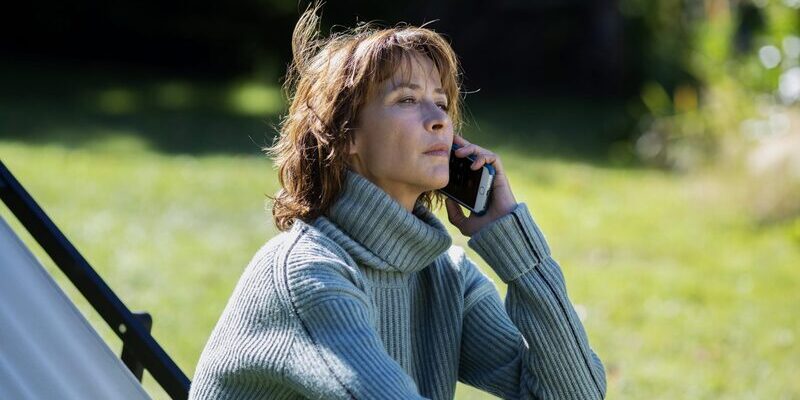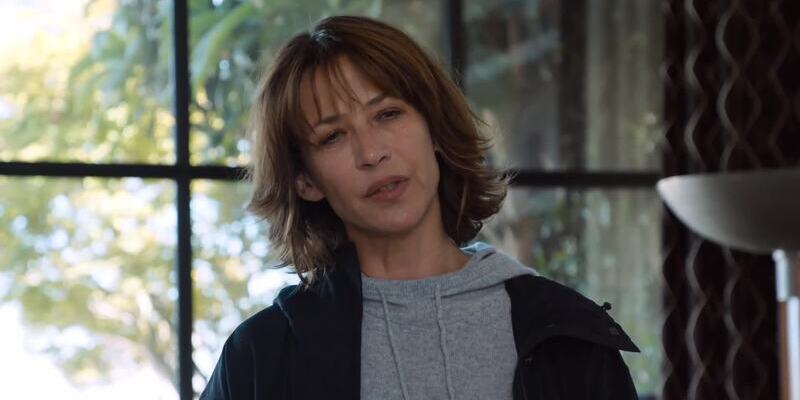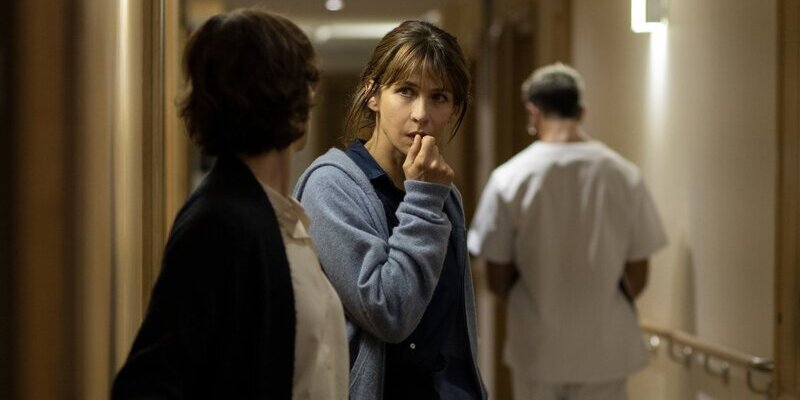
Review by
Eric Hillis
Directed by: François Ozon
Starring: Sophie Marceau, André Dussollier, Géraldine Pailhas, Charlotte Rampling,
Hanna Schygulla, Éric Caravaca, Grégory Gadebois

The French writer Emmanuèle Bernheim wrote two screenplays for the
prolific director François Ozon – 2003's
Swimming Pool and 2004's 5x2. Bernheim passed away in 2017, which meant Ozon was unable to allow
her to adapt her novel 'Everything Went Well', which details her
response to a request from her ailing father, a wealthy art collector,
to assist in ending his life in the aftermath of a debilitating stroke.
Just as Bernheim was entrusted with the responsibility of her father's
death, Ozon finds himself taking on the duty of portraying her
life.

I'm sure Bernheim would be flattered that Ozon has chosen the glamorous
Sophie Marceau to portray her screen version Manue, but Marceau
brings far more than timeless beauty to what might be her finest ever
performance. As Bernheim, Marceau brilliantly captures the tug of war
between a daughter's heart and an intelligent, rational mind.
When her octogenarian father André (André Dussollier) - who came
out of the closet after siring two daughters with his ex-wife Claude (Charlotte Rampling) - suffers a stroke, he finds his quality of life reduced and asks
Manue to help kill him. Murdering her old man is something we're told
she fantasised about as a younger woman, and in flashbacks we see André
treat her with a cold cruelty, mocking her weight (we see the lingering
effects of this in the gym-obsessed adult Manue, now boasting the body
of an athlete).

Despite her past troubles with the old man, Manue is taken aback by the
request, but presses on in trying to fulfil his wishes. She comes into
contact with a Swiss clinic (represented by Fassbinder muse
Hanna Schygulla) where for a fee of €10,000, André can
comfortably drift into one final slumber. Thanks to the trickiness of
French law, it's not as simple as just driving across the border, and
the more people André blabbers his intentions to, the more potential
trouble Manue and her sister Pascale (Géraldine Pailhas)
face.
Death might be the heaviest subject matter imaginable, but Ozon keeps
things light without ever getting into sentimental territory. This is
neither a lecture on the need to allow bodily autonomy or a debate on
the ethics of the subject. It's simply a story of a daughter following
her father's request, and whether she fully agrees with it or not is
simply not up for debate here. While it avoids sentimentality, Ozon's
film never lacks warmth. Much of this is due to the performance of
Dussollier, who remains chirpy to the end, looking forward to his date
with death the way a kid counts down the day to Christmas. While going
along with his request, his daughters do all they can to delay the
procedure in the hopes he might change his mind. Hearing of a man who
changed his mind at the last minute while at the Swiss clinic because he
saw his lover wearing a red dress, Manue dons a similar outfit, but of
course, her father is gay, so she's barking up the wrong tree. A
sandwich with a bite taken out of it by André serves as a visual
representation of Manue's journey, moved from the fridge to the freezer
before ultimately discarded in the trash.

What's laudable about the film is how Ozon never asks us to take a
side, and only those whose view on the matter is clouded by religious or
philosophical beliefs will likely adopt one. It's ironic then that Ozon
appears clouded by Bernheim's views on certain people in her life,
resulting in characters getting a raw deal we're unsure they're
deserving of. A former lover of André (Grégory Gadebois) is
constantly badmouthed by the sisters and portrayed as a gold-digger.
André's ex-wife is so ill-served that I'm not sure why she was included
in the film at all, especially when she's played by an actress of the
quality of Rampling. Despite a handful of flashbacks that portray him
negatively, André comes across as a likeable old coot, which makes you
wonder if such flashbacks were entirely necessary. Ozon clearly feels
responsible for telling Bernheim's story, but I wonder how its
supporting characters might feel about how he's characterised them
here.

Everything Went Fine is on
UK/ROI VOD now.

